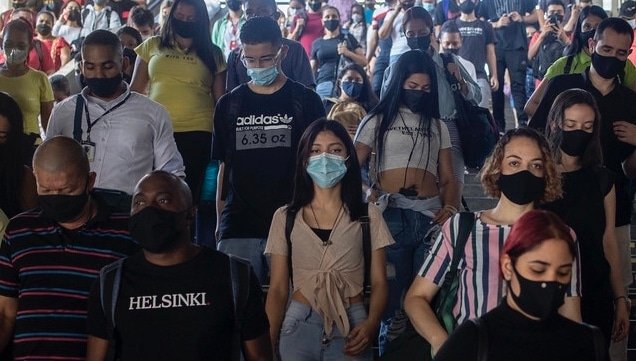The World Health Organization (WHO) says it is closely monitoring a new variant of COVID-19 called “Mu,” reported earlier this year in South America and now also present in Europe.
For the first time in its recent epidemiological update, WHO called this mutation a “variant of interest”.
Mu was first identified in Colombia in January 2021, and cases and outbreaks have since been “sporadically reported” in South America and Europe, WHO said.
While the global prevalence of Mu is less than 0.1% among sequenced COVID-19 cases, its prevalence has “steadily increased” in Colombia and Ecuador, where it now accounts for about 39% and 13% of infections, respectively.
Reports of variant prevalence should be “interpreted with due consideration” given the low sequencing capacity of most countries, the global health agency said.
Research underway on reduced vaccine effectiveness
Mu is the fifth “variant of interest” to be monitored by WHO since March 2020 It “has a constellation of mutations” that suggest it may be more resistant to vaccines, the UN agency warned while stressing that more research would be needed to confirm this.
Preliminary data show reduced vaccine efficacy “similar to that observed for the Beta variant,” identified in South Africa. Messenger RNA vaccines remain 77% effective against the Beta variant.
WHO said it would monitor “the epidemiology of the Mu variant in South America, particularly with the co-circulation of the Delta variant, for changes.
A sporadic presence in Europe
The newly named Mu variant was already classified as a “variant of interest” in a list published by the European Centre for Disease Prevention and Control (ECDC) on August 26.
As of September 1, the ECDC states that the variant has been detected “sporadically” in several European countries including Austria, Belgium, Denmark, Finland, France, Germany, Ireland, Italy, Luxembourg, Portugal, Spain, the Netherlands and the UK.
Its presence “does not seem to have increased recently” in Europe according to Sibylle Bernard-Stoecklin of the infectious diseases department of Santé publique France during a weekly press briefing.
Currently, the WHO considers that four variants are of concern:
- Alpha (British), present in 193 countries
- Beta (South African) reported in 141 countries
- Gamma (Brazilian) reported in 91 countries
- Delta (Indian), present in 170 countries.

